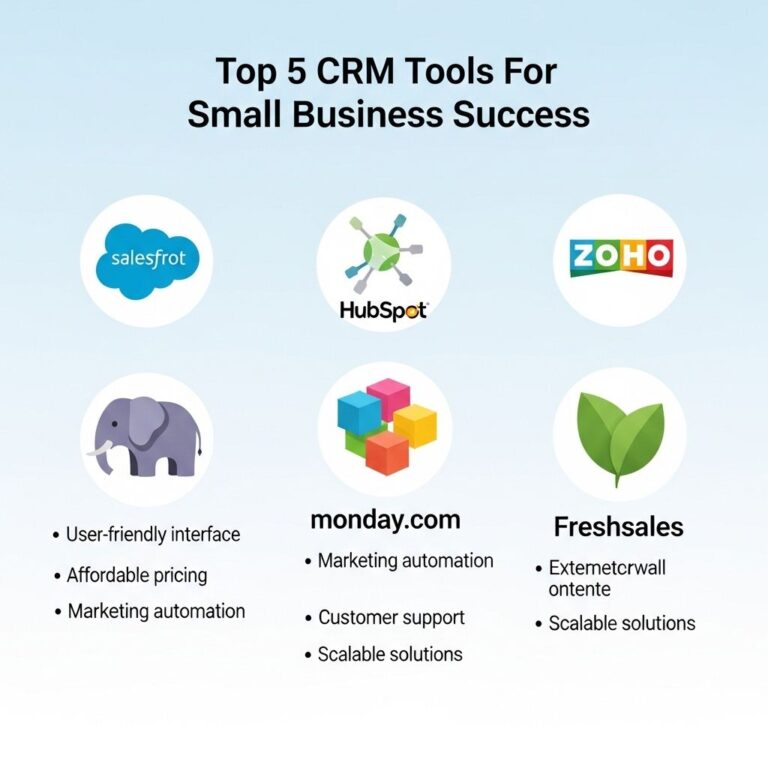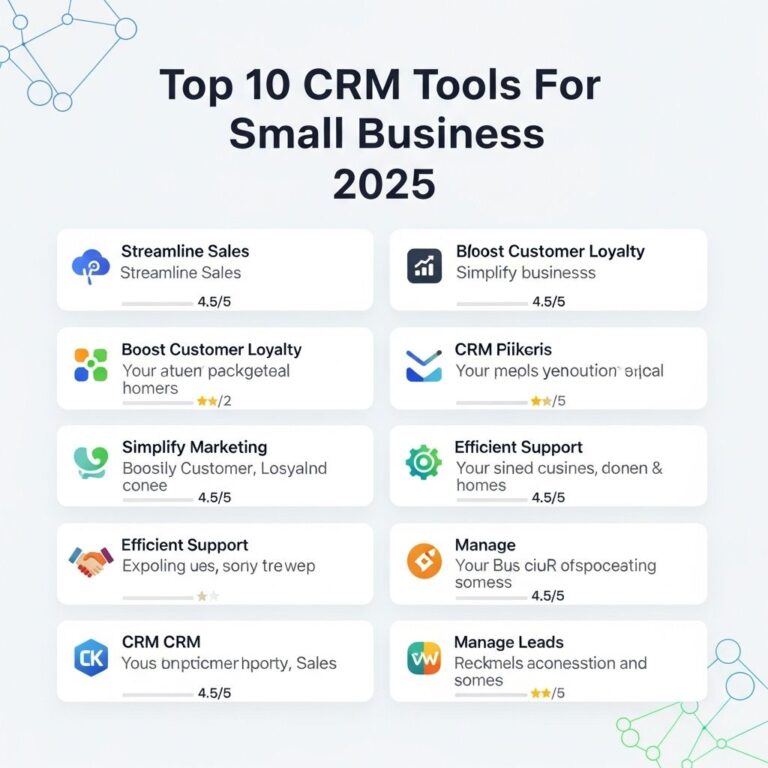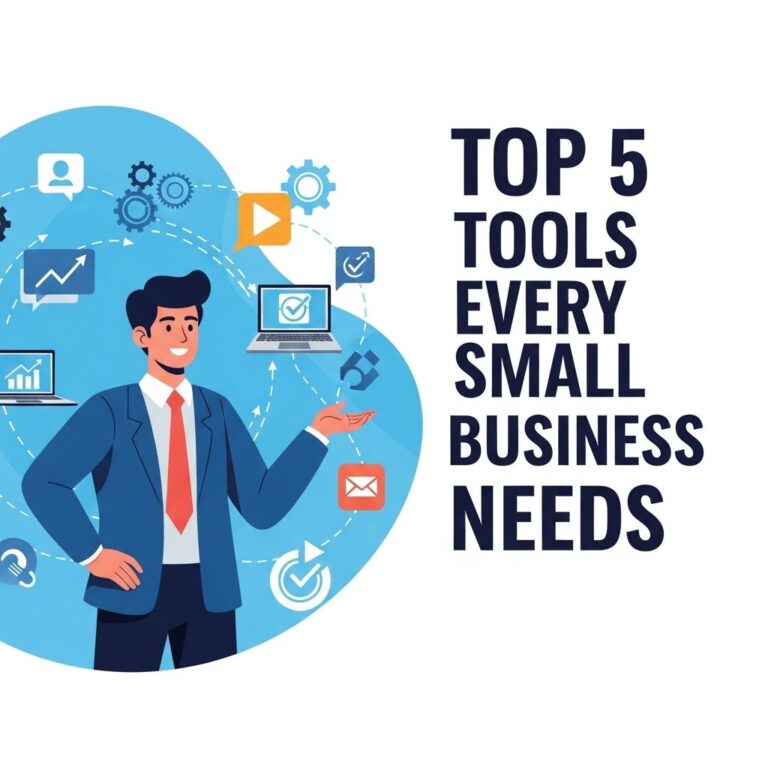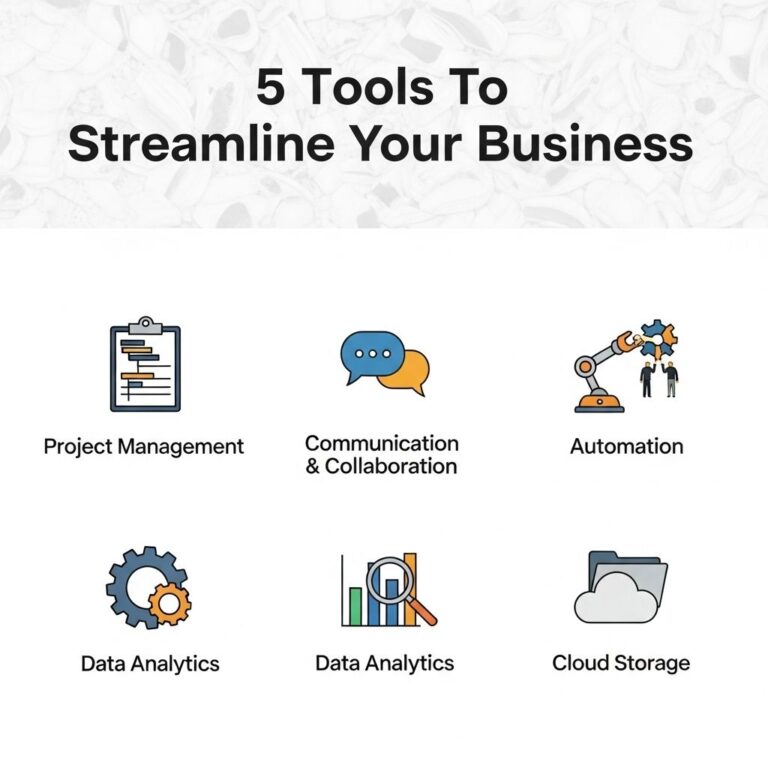In today’s fast-paced digital landscape, maintaining meaningful connections with customers is more crucial than ever for small businesses. One of the most effective ways to manage these interactions and streamline operations is through Customer Relationship Management (CRM) tools. These powerful platforms provide invaluable insights into customer behavior, enhance communication, and ultimately drive sales growth. In this article, we will explore seven of the best CRM tools available for small businesses, highlighting their unique features and benefits to help you make an informed decision.
Table of Contents
Understanding CRM and Its Importance
Before diving into specific tools, it’s essential to understand what a CRM system is and why it matters. A CRM tool helps businesses manage relationships and interactions with potential and existing customers. By consolidating customer information into a single database, businesses can:
- Improve customer service
- Enhance customer satisfaction and retention
- Automate repetitive tasks
- Track sales and marketing efforts
- Analyze and understand customer behavior
Key Features to Look for in a CRM Tool
When evaluating CRM options, consider the following key features:
User-friendly Interface
A straightforward and intuitive interface is crucial for ensuring that all team members can utilize the tool effectively without extensive training.
Customization Options
Every business has unique needs; thus, the ability to customize fields, dashboards, and reports can significantly enhance user experience.
Integration Capabilities
Look for CRMs that easily integrate with other tools your business already uses (e.g., email marketing platforms, social media, etc.).
Mobile Accessibility
In an increasingly mobile world, having access to CRM data on-the-go can enhance team collaboration and responsiveness.
Analytics and Reporting
Robust analytical features can help your business track performance metrics and gain insights into customer behavior.
Top 7 CRM Tools for Small Businesses
Let’s take a closer look at seven of the leading CRM tools suitable for small businesses:
1. HubSpot CRM
HubSpot CRM is renowned for its user-friendly interface and a wealth of features offered for free. It’s perfect for small businesses that are just getting started with CRM.
- Features: Contact management, email tracking, lead generation, and reporting.
- Pricing: Free, with premium paid options starting at $45/month.
2. Zoho CRM
Zoho CRM is a highly customizable platform that caters to small businesses with a variety of features designed to streamline processes.
- Features: Sales automation, social media integration, inventory management.
- Pricing: Plans start at $12/user/month.
3. Salesforce Essentials
Salesforce is one of the most recognized names in the CRM space. Its Essentials package offers robust features tailored for small businesses.
- Features: Lead and opportunity management, customizable dashboards, comprehensive reporting.
- Pricing: Plans start at $25/user/month.
4. Freshsales
Freshsales is a CRM tool from Freshworks that emphasizes usability and automation, making it a popular choice for small to medium-sized businesses.
- Features: Built-in phone and email, lead scoring, and activity capture.
- Pricing: Plans start at $15/user/month.
5. Pipedrive
Pipedrive is a sales-focused CRM that’s designed for small teams that want to enhance their sales processes.
- Features: Visual sales pipeline, goal tracking, automated workflows.
- Pricing: Plans start at $15/user/month.
6. Agile CRM
Agile CRM is an affordable option that provides essential features for managing customer relationships and sales.
- Features: Contact management, marketing automation, and reporting.
- Pricing: Free for up to 10 users, paid plans start at $8.99/user/month.
7. Insightly
Insightly is particularly well-suited for project management as well as CRM, making it a unique option for small businesses.
- Features: Project management integration, email tracking, and pipeline management.
- Pricing: Plans start at $29/user/month.
Comparison Table of CRM Tools
| CRM Tool | Free Plan | Starting Price | Key Features |
|---|---|---|---|
| HubSpot CRM | Yes | $0 | Email tracking, reporting |
| Zoho CRM | No | $12/user | Sales automation, inventory management |
| Salesforce Essentials | No | $25/user | Custom dashboards, reporting |
| Freshsales | No | $15/user | Activity capture, lead scoring |
| Pipedrive | No | $15/user | Visual pipeline, goal tracking |
| Agile CRM | Yes | $8.99/user | Marketing automation, reporting |
| Insightly | No | $29/user | Project management integration |
Conclusion
Choosing the right CRM tool is a significant decision that can impact the success of your small business. Each of the tools mentioned above offers unique features and pricing plans, catering to a variety of business needs and budgets. With the right CRM system in place, you can enhance customer interactions, streamline operations, and foster lasting relationships that drive your business forward. Evaluate your specific requirements, take advantage of free trials, and select the tool that aligns best with your business goals.
FAQ
What is a CRM tool?
A CRM (Customer Relationship Management) tool is a software solution that helps businesses manage customer interactions, track sales, and streamline processes to improve customer relationships and drive sales growth.
Why should small businesses use CRM tools?
Small businesses should use CRM tools to better manage customer data, improve communication, enhance customer service, and ultimately boost sales and marketing efforts.
What are some popular CRM tools for small businesses?
Some popular CRM tools for small businesses include HubSpot CRM, Zoho CRM, Salesforce Essentials, Pipedrive, and Freshsales.
How can CRM tools help improve sales?
CRM tools help improve sales by providing insights into customer behavior, helping sales teams track leads and opportunities, and automating repetitive tasks to increase efficiency.
Are CRM tools easy to use for small businesses?
Yes, many CRM tools are designed with user-friendly interfaces and offer tutorials and support to help small businesses get started quickly and effectively.
What features should small businesses look for in a CRM tool?
Small businesses should look for features such as contact management, lead tracking, sales analytics, reporting, and integration capabilities with other tools and software.









